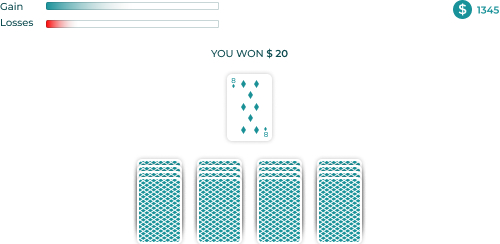Pymetrics Games Online Preparation – 2025

What Is Pymetrics Games?
The Pymetrics Games are a pre-employment psychometric test employers use to assess candidates’ traits and skills. There are 12 interactive Pymetrics games that each test different skills, such as numerical reasoning, logical reasoning, and critical thinking skills. They also assess traits such as risk-taking behaviors, patience, and focus.
Arrows Game
The Arrows game will test your attention to detail, focus, ability to learn, and ability to work under pressure. In this game, you will see different colored sets of flashing arrows. Depending on the color, you’ll need to indicate the direction of either the center or side arrows. For example, if the arrows are blue, you must indicate the direction of the center arrow. You’ll only have three minutes to complete this task, and the arrows will flash more than 100 times during the game.
Balloon Game
The Balloon Game will require you to pump a balloon to make money. Each pump will earn $0.05; you can collect the money and move on to the next round at any point. However, the catch for this game is that the balloon may pop at any moment, causing you to lose all of the money you earned for that round. The goal is to secure as much money as possible.
This game assesses your risk-taking, impulsivity, decision-making, and pattern recognition. Identifying the underlying pattern that indicates when an explosion will occur will help you time your pumps and collections.

Cards Game
The Cards Game is similar to the Balloon Game in that it tests your risk tolerance, learning behavior, and pattern recognition. In this game, you will have four decks of cards that you can draw from. Each card you draw will win or lose your money, and the game’s object is to end with as much money as possible.
You’ll want to pay attention to what happens when you draw from each deck to do well in this game. Some decks may be safer than others, meaning you won’t lose as much from them, but you won’t earn as much.

Digits Memory
The Digits Memory game is an adaptive memory test, meaning as you answer questions correctly, the test will get more challenging, and as you answer questions incorrectly, the test will become easier. In this game, a sequence of digits will quickly flash across the screen, and you will need to type the digits in the correct order from memory. As you answer the questions, the number of digits will either increase or decrease to make the game more or less challenging. The goal is to remember as long of a sequence as you can.
Faces Game
The purpose of the Faces Game is to test your emotional intelligence. Each round presents a picture of someone’s face and some context about the situation they are reacting to. You must use visual and contextual clues to identify how each person feels at that moment.
Hard or Easy Task Game
In the Hard or Easy Task Game, test takers will choose a hard or easy task to complete based on the probability of winning and the amount they can win for each task. This game assesses your motivation, effort, and strategic decision-making. Sometimes, completing the easier task with a lower reward amount will be more strategic than the harder task with a higher reward amount. Your goal is to end the game with as much money as possible.
Keypress Game
The Keypress Game will assess your processing, key pressing speed, motor function, and cognitive skills. Once the game starts, you’ll need to press a specific keyboard button as many times as possible in one minute until the game tells you to stop.
Lengths Game
In the Lengths Game, you’ll receive two similar images with one detail slightly different. For example, you may see two cats, one with marginally longer whiskers than the other. For each round, your job is to determine if the cat you see has smaller or longer whiskers.
Money Exchange #1
The first Money Exchange games will test your trust and risk tolerance. You will start the game with $10 and be asked to transfer an amount of your choosing to the other person. That sum will be tripled, and the partner will transfer money back to you. After the transaction, you will rate how fair you think the partner was in this transaction.
Money Exchange #2
The second Money Exchange game is set up similarly but tests your altruism. You and your partner will both start the game with $5, and you get to decide how much you want to give or take from your partner. In the second round, you’ll start with $10, while your partner only has $5. Again, you can give or take money from your partner, and then you will rate the transaction’s fairness.
Stop Game
The Stop Game will mainly focus on your ability to pay attention. You will press the spacebar when a red circle appears on the screen. Until you see that red circle, you do nothing. You will lose points if you miss a red circle or press the space bar when there isn’t one on the screen.
Tower Game
The Tower Game will give you two minutes to organize colored rings in a specific order to recreate the target tower. You will have three stacks to work from and can only move the top ring from one pile to another at a time. The goal is to recreate the target using the fewest moves. You will need excellent planning skills and attention to detail to do well on this task.

How to Prepare for the Pymetrics Assessment?
The Pymetrics Assessment is designed to test your skills and abilities without requiring prior knowledge. However, preparing for the different game formats is crucial to doing well on these exams. Using resources such as online practice tests can help you prepare for the various games and improve your performance on the tests.




